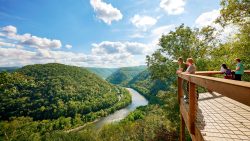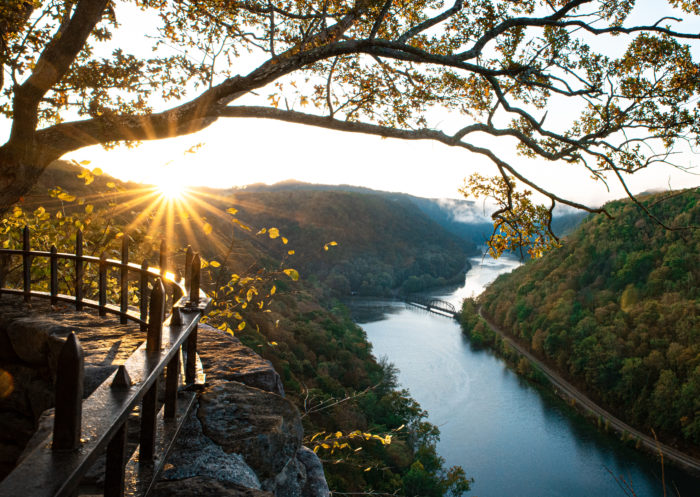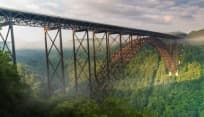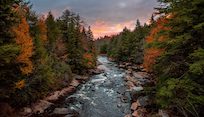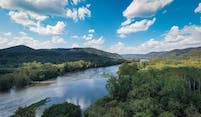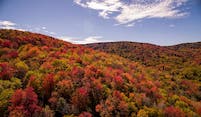These 8 Historic Spots in the Eastern Panhandle are Worth a Trip
Beautiful, rolling mountains and stunning vistas are not the only things West Virginia offers.
In fact, West Virginia has a rich history dating back generations that is waiting to be explored. If you’re looking for a unique destination to bring out your inner history buff, these eight spots in the Eastern Panhandle are just for you.
Downtown Charles Town Historic District
History lovers and explorers will want to take advantage of a visit to Charles Town. Located in the heart of Jefferson County, downtown Charles Town still looks much like it did when George Washington and his brother Charles—where the town gets its namesake—first developed it in the early 1800s. Notable locations include the Jefferson County Courthouse, where John Brown’s trial was held, and the New Opera House, which have both made it onto the National Register of Historic Places. Many old colonial-style buildings remain as unique restaurants, coffee shops and shopping destinations. This historic town is just a few minutes from Harpers Ferry National Historical Park.
Harpers Ferry National Historical Park
The beautiful town of Harpers Ferry is located at the confluence of the Shenandoah and Potomac rivers, on the ancestral home of the Tuscarora and Shawnee people. Here, you can step back in time to colonial America and explore the many museums, battlefields and other iconic landmarks that marked this area during the Civil War era. The town is known for the famous location of John Brown’s uprising against slavery, where you can visit the very arsenal where the raid took place and sparked the beginning of the Civil War.
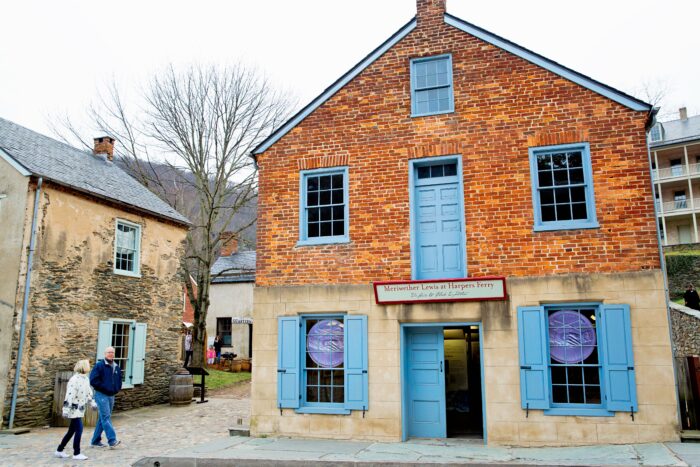
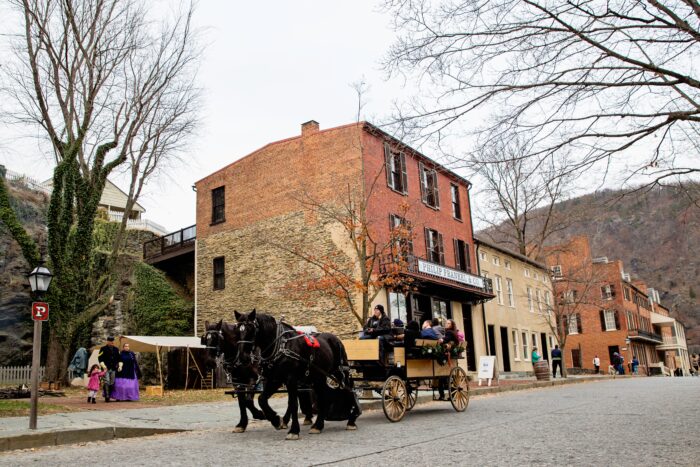
Jefferson Rock
Located within Harpers Ferry National Historical Park, this popular destination is situated along the Appalachian Trail and serves as a gorgeous lookout point of the surrounding mountains and river below — the same view that Thomas Jefferson had when he stood in the same spot in 1783.
Martinsburg Roundhouse
Martinsburg is a lively town full of industrial history far and wide, with the Martinsburg Roundhouse standing as a rare example of railroading technology for its time. Built in the 1840s as part of the B&O Railroad, this unique landmark has been a part of two major historical events. During the Civil War, railroads were essential in transporting goods and supplies to troops. In May of 1861, Confederate General “Stonewall” Jackson was given orders to stop all train activity at the Martinsburg Roundhouse to cut supplies from Union army troops. Jackson then destroyed the roundhouse, which was later rebuilt in 1866.
The Martinsburg Roundhouse served as the setting for the beginning of the Great Railroad Strike of 1877, which was triggered by wage cuts. Today, this landmark can be toured and is home to a children’s museum.
Historic Berkeley Springs
Nestled in the mountains of West Virginia is the hidden gem of Berkeley Springs, also known as “America’s First Spa.” The mountain town was built around the warm mineral waters that Native Americans would frequent and is the perfect place to travel back in time to the streets George Washington would visit. Washington advocated for the natural spring’s healing powers and termed the town his favorite getaway. Today, you can relax and enjoy Berkeley Springs State Park’s natural springs and spas. You can even find the same style “bathtub” George Washington would have used when visiting the springs.
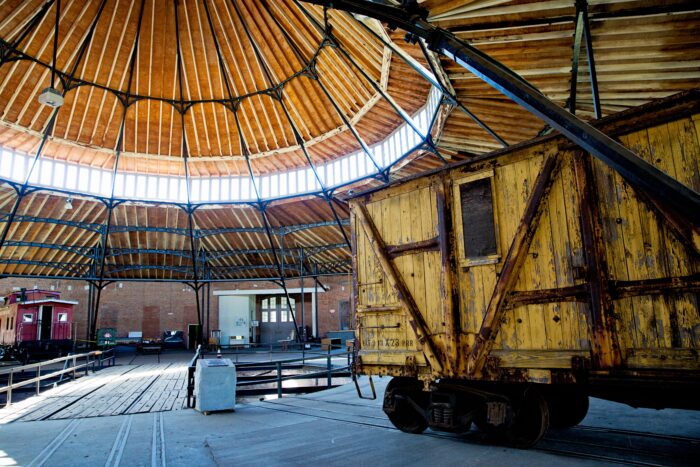
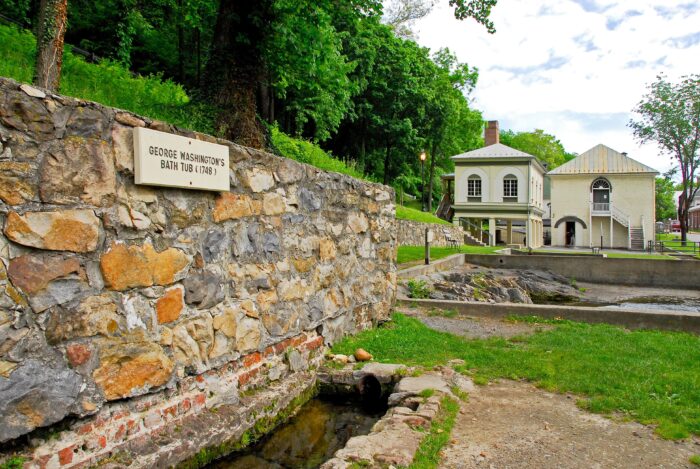

James Rumsey Monument
Located in the quaint town of Shepherdstown, this towering statue overlooks the nearby Potomac River to commemorate local inventor James Rumsey and his successful demonstration of the first steamboat in 1787. Visitors can walk the nearby C&O canal or enjoy the onsite park that is a mere walking distance from charming shops and restaurants.
Cacapon Resort State Park
Cacapon Resort State Park is known for its unique outdoor experiences, such as horseback riding, lake adventures and championship golf. However, this 6,000-plus-acre park was constructed by the Civilian Conservation Corps as part of the New Deal Act under Frederick D. Roosevelt, which allowed conservation efforts to start in West Virginia and helped establish many other state parks. Most of the park’s construction took place in the early 1940s by Civilian Conservation workers, adding cabins and lodges in the 1950s. The park’s name, taken from the nearby mountain and Cacapon River, is said to be a derivation of the Shawnee word for “medicine.”
General Adam Stephen House
Built between 1772 and 1789, this two-story limestone house belonged to the founder of Martinsburg. This beautiful home was listed on the National Register of Historic Places in 1970 and has an on-site museum that guests can visit after marveling at the stunning gardens and landscapes of the property.
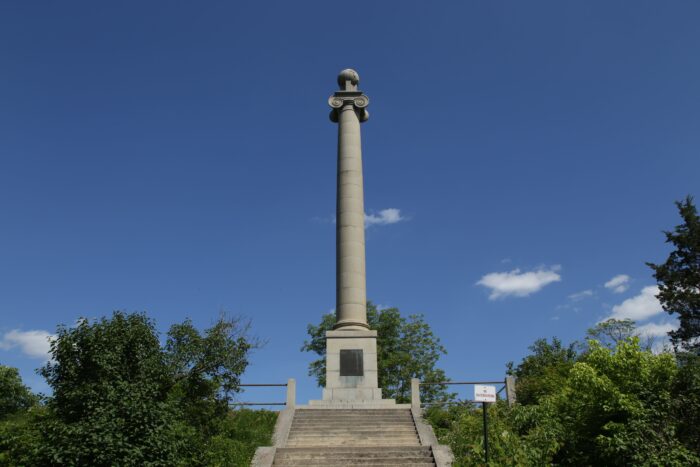
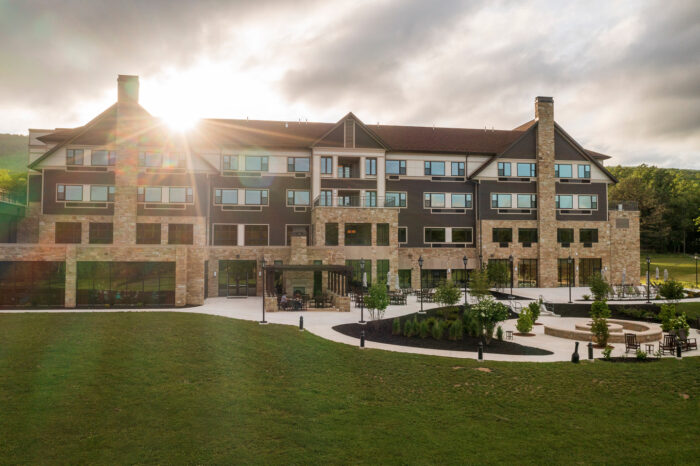
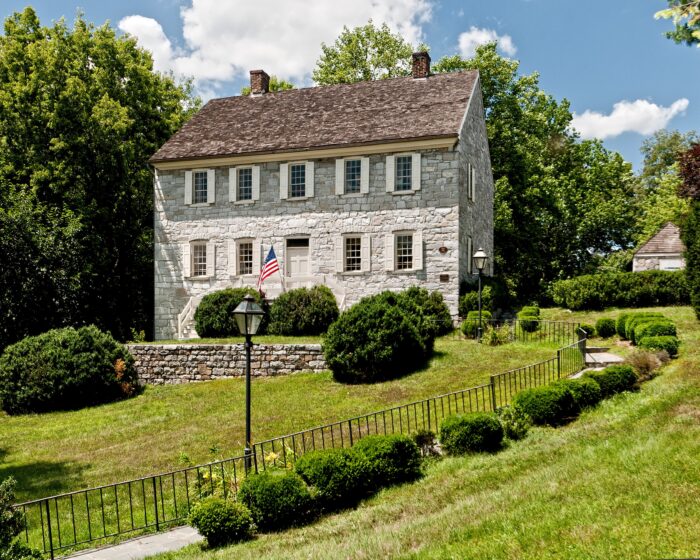
Are you ready to add West Virginia to your traveling history? Order our free West Virginia Vacation Guide and get inspired for your next Almost Heaven trip.
Send Me My Vacation GuideThis post was last updated on December 6, 2024
